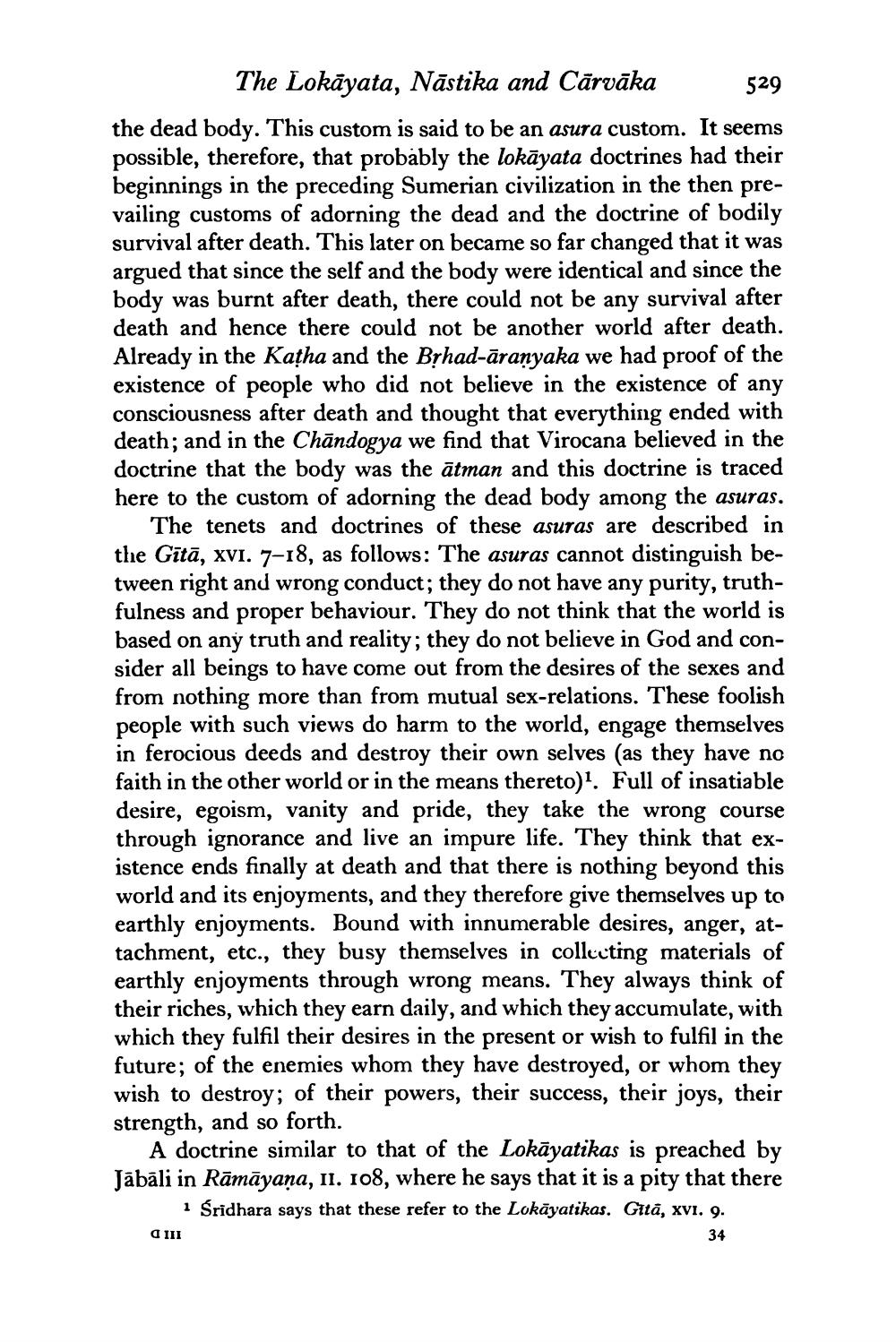________________
The Lokāyata, Nāstika and Cārvāka 529 the dead body. This custom is said to be an asura custom. It seems possible, therefore, that probably the lokāyata doctrines had their beginnings in the preceding Sumerian civilization in the then prevailing customs of adorning the dead and the doctrine of bodily survival after death. This later on became so far changed that it was argued that since the self and the body were identical and since the body was burnt after death, there could not be any survival after death and hence there could not be another world after death. Already in the Katha and the Brhad-āranyaka we had proof of the existence of people who did not believe in the existence of any consciousness after death and thought that everything ended with death; and in the Chāndogya we find that Virocana believed in the doctrine that the body was the ātman and this doctrine is traced here to the custom of adorning the dead body among the asuras.
The tenets and doctrines of these asuras are described in the Gītā, xvi. 7-18, as follows: The asuras cannot distinguish between right and wrong conduct; they do not have any purity, truthfulness and proper behaviour. They do not think that the world is based on any truth and reality; they do not believe in God and consider all beings to have come out from the desires of the sexes and from nothing more than from mutual sex-relations. These foolish people with such views do harm to the world, engage themselves in ferocious deeds and destroy their own selves (as they have no faith in the other world or in the means thereto). Full of insatiable desire, egoism, vanity and pride, they take the wrong course through ignorance and live an impure life. They think that existence ends finally at death and that there is nothing beyond this world and its enjoyments, and they therefore give themselves up to earthly enjoyments. Bound with innumerable desires, anger, attachment, etc., they busy themselves in collecting materials of earthly enjoyments through wrong means. They always think of their riches, which they earn daily, and which they accumulate, with which they fulfil their desires in the present or wish to fulfil in the future; of the enemies whom they have destroyed, or whom they wish to destroy; of their powers, their success, their joys, their strength, and so forth.
A doctrine similar to that of the Lokāyatikas is preached by Jābāli in Rāmāyaṇa, 11. 108, where he says that it is a pity that there i Sridhara says that these refer to the Lokāyatikas. Gità, xvi. 9.
34
au




